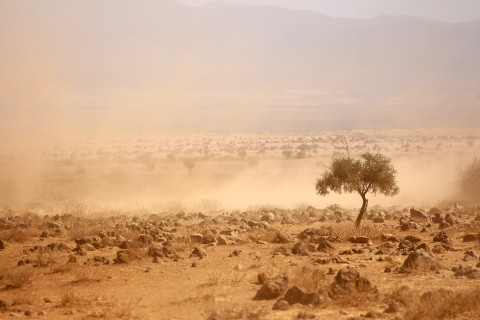Modern disaster risk reduction strategies must incorporate indigenous knowledge and local cultural practices to be adoptable and sustainable, a descriptive phenomenological study carried out in Kenya by researchers from the University of Eastern Finland and the University of Rwanda concludes.
The deleterious effects of climate change, such as increasing droughts, are becoming a pervasive global health burden. The heaviest health burden leans on the remote indigenous agro-pastoral communities, living in the Arid and Semi-Arid Lands (ASALs) that are severely affected by climate change and often already suffering from extreme poverty and lower life expectancy.
Ongoing research at the Institute of Public Health and Clinical Nutrition of the University of Eastern Finland (UEF) revolves around the indigenous resilience capabilities amidst the challenges exacerbated by climate change. “Indigenous communities’ traditional ecological knowledge (TEK) involves coping strategies and survival tactics that have helped them to survive for thousands of years."
“Their traditional ecological knowledge could also help us to contextualise our public health adaptation strategies, ensuring that science-driven health interventions are tailored as “strengthened home-grown solutions" to their local problems,” says Sohaib Khan, University Lecturer of International Health at the University of Eastern Finland
Growing scientific evidence underscores that climate change can be effectively tackled only by sustainable, culturally inclusive risk reduction and adaptation strategies. In the present study, Doctoral Researcher Christian Muragijimana and Dr Khan explored the contextual application of indigenous knowledge (IK) for culturally relevant and sustainable disaster risk reduction (DRR) strategies for the nomadic agro-pastoral communities in Lopur, Turkana, Kenya. Data for the study were collected in focus group discussions involving key community influencers.
The study revealed a growing vulnerability as a result of the disconnect between modern interventions, indigenous knowledge and the newly adopted, environmentally degrading coping tactics. Policy-wise, the findings portrayed the necessity for cultural integration and incorporation of indigenous knowledge-based strategies for reinforced information dissemination, accessibility and acceptability for climate change adaptation, and specifically drought preparedness and response.
The authors call for research on the already existing indigenous knowledge-based solutions that could improve resilience in the face of food and water insecurity in vulnerable communities in the ASALs. In their own research they continue to seek a holistic understanding of fostered, culturally inclusive climate change adaptation strategies. “The ultimate goal is to contribute to alleviating the global health burden on the vulnerable populations, systems and regions that are disproportionately affected by climate change.”
Research article:
Muragijimana, C., Ntakirutimana, T. & Khan, S., 2024, ‘Climate change, culture and health: Indigenous resilience, a study from Turkana County, Kenya’, Jàmbá: Journal of Disaster Risk Studies 16(1), a1647. https://doi.org/10.4102/jamba.v16i1.1647



